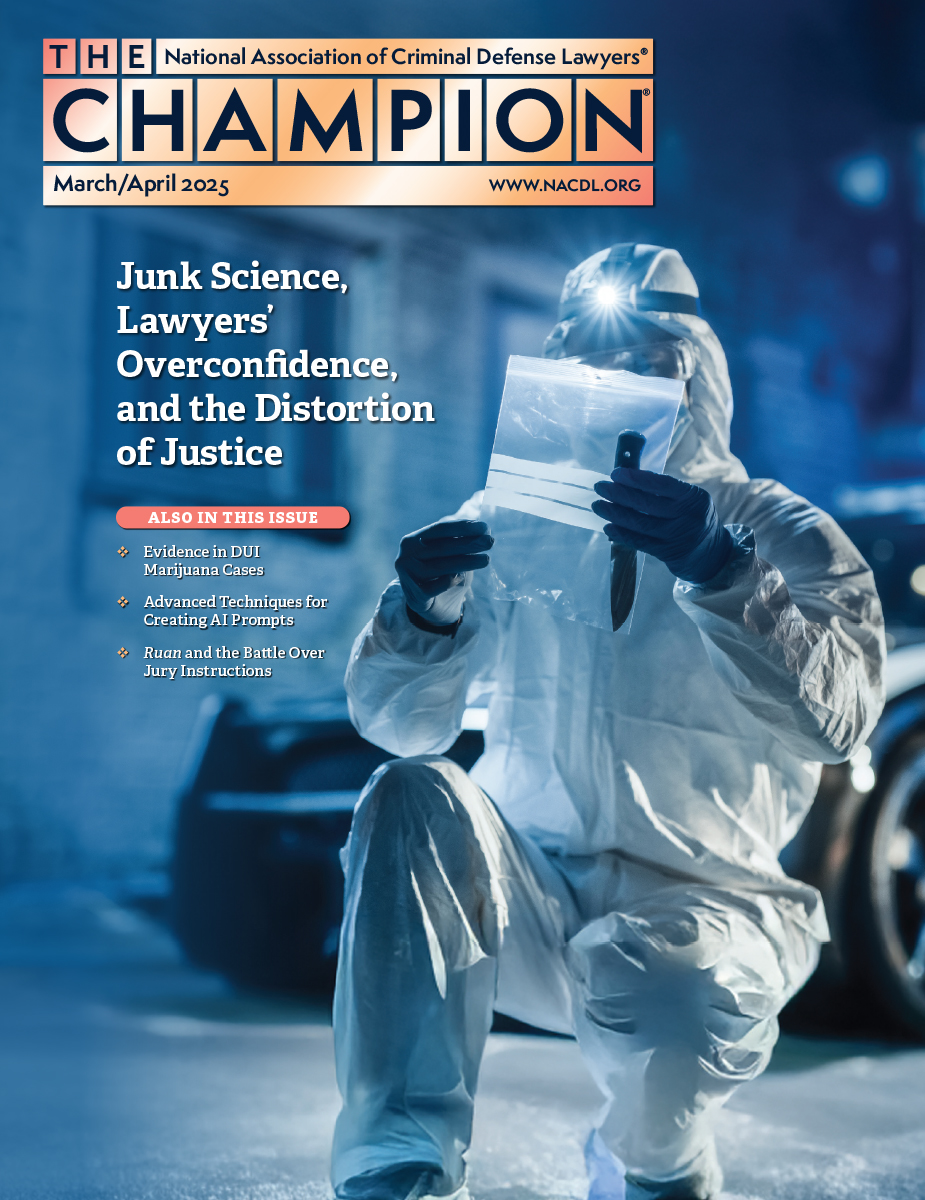Washington, DC (March 30, 2016) – In a widely-awaited decision concerning the Sixth Amendment right to counsel and the government's pretrial seizure of a defendant's assets, the U.S. Supreme Court ruled today in the case of Luis v. United States (14-419).
In an opinion by Justice Breyer, joined by Chief Justice Roberts and Justices Ginsburg and Sotomayor, the Court found that "the pretrial restraint of legitimate, untainted assets needed to retain counsel of choice violates the Sixth Amendment." The plurality explained that the Constitutional line they have drawn—distinguishing between tainted funds and innocent funds needed to pay for counsel—should prove workable. "We concede, as Justice Kennedy points out…that money is fungible; and sometimes it will be difficult to say whether a particular bank account contains tainted or untainted funds. But the law has tracing rules that help courts implement the kind of distinction we require in this case." Justice Thomas wrote a concurring opinion agreeing with the plurality that "a pretrial freeze of untainted assets violates a criminal defendant's Sixth Amendment right to counsel of choice[,]" but disagreeing with the plurality's "balancing approach."
In addition to finding a Sixth Amendment violation in the pretrial restraint of innocent assets in this case, the plurality opinion makes the very important point about the capacity of America's public defense systems. The plurality explained that were the government able to properly seize such untainted assets, thereby depriving an accused person of the ability to retain counsel of their choice, "[t]hese defendants, rendered indigent, would fall back upon publicly paid counsel, including overworked and underpaid public defenders. As the Department of Justice explains, only 27 percent of county-based public defender offices have sufficient attorneys to meet nationally recommended caseload standards." The plurality went on to explain the "substantial risk" that if the government's position were to prevail, it would increase the government-paid-defender workload, "render[ing] less effective the basic right the Sixth Amendment seeks to protect."
"We are extremely pleased with the Court's decision recognizing that a defendant's constitutional right to be represented by her attorney of choice is fundamental to the proper working of our criminal justice system," said attorney Courtney J. Linn of Orrick, Herrington & Sutcliffe LLP, who was counsel of record on NACDL's joint amicus curiae brief to the U.S. Supreme Court. "A majority of the Justices—from across the ideological spectrum—affirmed that the Sixth Amendment places meaningful limits on the government's ability to interfere with an accused's defense against serious criminal charges."
NACDL President E.G. "Gerry" Morris said: "The importance of this decision cannot be overstated. In oral argument before the Supreme Court, in response to a question by Justice Kennedy, the government acknowledged that its position that untainted assets can be Constitutionally restrained prior to trial could be extended to all types of crimes, supporting Justice Kennedy's concern that this '[would] prevent the private bar from – from practicing law unless it did so on a contingent basis.' The majority of the court recognized the existential threat to the Sixth Amendment the right to counsel of choice posed by the government's position and unequivocally held that the right to counsel must prevail. This decision is a reaffirmation of the importance of the Sixth Amendment guarantee and imposes a significant limitation on the government's expanding efforts to seize the funds of an accused before there has been any determination of guilt."
NACDL filed an amicus curiae brief to the U.S. Supreme Court with the California Attorneys for Criminal Justice and the Florida Association of Criminal Defense Lawyers. Counsel of record was Courtney J. Linn of Orrick, Herrington & Sutcliffe LLP. The team on the brief also included Robert Loeb and Kevin Arlyck of the Orrick firm, Sharon Cohen Levin of Wilmer Cutler Pickering Hale and Dorr LLP, David B. Smith of Smith & Zimmerman PLLC, and Jonathan Hacker of O'Melveny & Myers LLP, co-chair of NACDL's Amicus Curiae Committee.
NACDL's joint amicus curiae brief is available here.
The Supreme Court's opinion is available here.
Contacts
Ivan J. Dominguez, NACDL Director of Public Affairs & Communications, (202) 465-7662 or idominguez@nacdl.org for more information.
The National Association of Criminal Defense Lawyers is the preeminent organization advancing the mission of the criminal defense bar to ensure justice and due process for persons accused of crime or wrongdoing. A professional bar association founded in 1958, NACDL's many thousands of direct members in 28 countries – and 90 state, provincial and local affiliate organizations totaling up to 40,000 attorneys – include private criminal defense lawyers, public defenders, military defense counsel, law professors and judges committed to preserving fairness and promoting a rational and humane criminal legal system.











